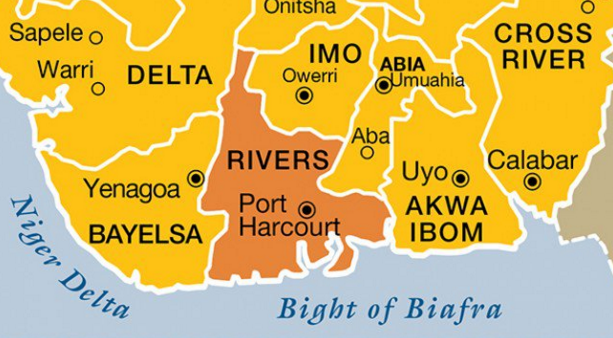The Central Bank of Nigeria (CBN) has resisted calls from financial institutions in Washington to float the naira, saying it cannot kill Nigerians in the name of floating the naira.
Speaking to journalists on the sidelines of the World Bank/IMF meetings, Isaac Okorafor, spokesman of the apex bank, also restated the CBN’s commitment to ensuring access to forex by the drivers of the economy — small and medium enterprises (SMEs).
Okorafor said the call in Washington to liberalise the foreign exchange market by floating the naira is laughable.
Advertisement
“The call here in Washington that we should float the naira, liberalise the market; our market is extensively liberalised and the call to float the naira is a bit laughable in our case,” he said.
“Yesterday, when Madame Lagarde was discussing the economy of Egypt, she lamented herself, the devastating inflation that is in that country.
“Egypt has half of our population, Egypt receives about 12 billion in foreign earnings and several billions in tourism. We are 180 million people, our infrastructure is so poor and the productive capacity cannot be fast enough to rise to benefit from massive depreciation.
Advertisement
“If you float the naira today, and given the discoveries by security agencies, you’ll discover that our case will be terrible. If Egypt today has an inflation rate of almost 31 percent, remember Angola also has about 36 percent inflation, ours is at 17.26.
“If we float the naira and we allow speculators and those with corruption money and all the people who create the bubbles to launch into the market, you can yourself imagine the kind of situation we will find ourselves
“Yes, we would go all out to practise economic theory the way they say you should allow your currency to float, but of course, you should also know that no country floats its currency; just leaving it to the dictates of the market.
“Our economies has its own peculiarities, and we cannot kill our people in the name of floating the naira.”
Advertisement
CBN: WE WOULD SANCTION BANKS FRUSTRATING SMEs
On access to forex by SMEs, Okorafor advised anyone being frustrated by commercial banks to report to the CBN, with evidence.
He vowed that the bank would take necessary action and sanctions, where necessary.
“It has become necessary that we bring to your notice the complaints from customers, especially those who operate in the SMEs segment of the market, that banks are frustrating their efforts at getting forex,” he said.
“You could recall that recently we introduced a window to be able to give forex to SMEs, which incidentally the engine of growth in our economy, for them to be able to obtain a small amount of forex that suits their business and we have received complaints now that banks are frustrating them.
Advertisement
“We have reviewed all these complaints and found out that they do not have evidence and so we want to use this opportunity to appeal to customers of banks and the SMEs to pleas give us concrete evidence against these banks so that we can hold them responsible by way of sanctions.
“Get a photocopy of your Form Q, Form X, Form A or Form M. Give us the name of the bank, branch and send to us and we will deal with them as example to others.
Advertisement
“We also say to all Nigerians that the only way we can make things better for you is to call the CBN whenever you are in trouble or whenever you get frustrated.
“We have a number you can call or you send an email to our consumer protection Dedartment. We want to urge everyone who is frustrated by banks to call and lay complaints. We assure you, you will get redress.”
Advertisement
4 comments









Absolutely! Nice comments!!
Very good comment
Why can’t Washington float their own dollars. They are always doing things that will benefit themselves. Kudos to the central bank of nigeria for rejecting such moves
Excellent decision by the CBN.